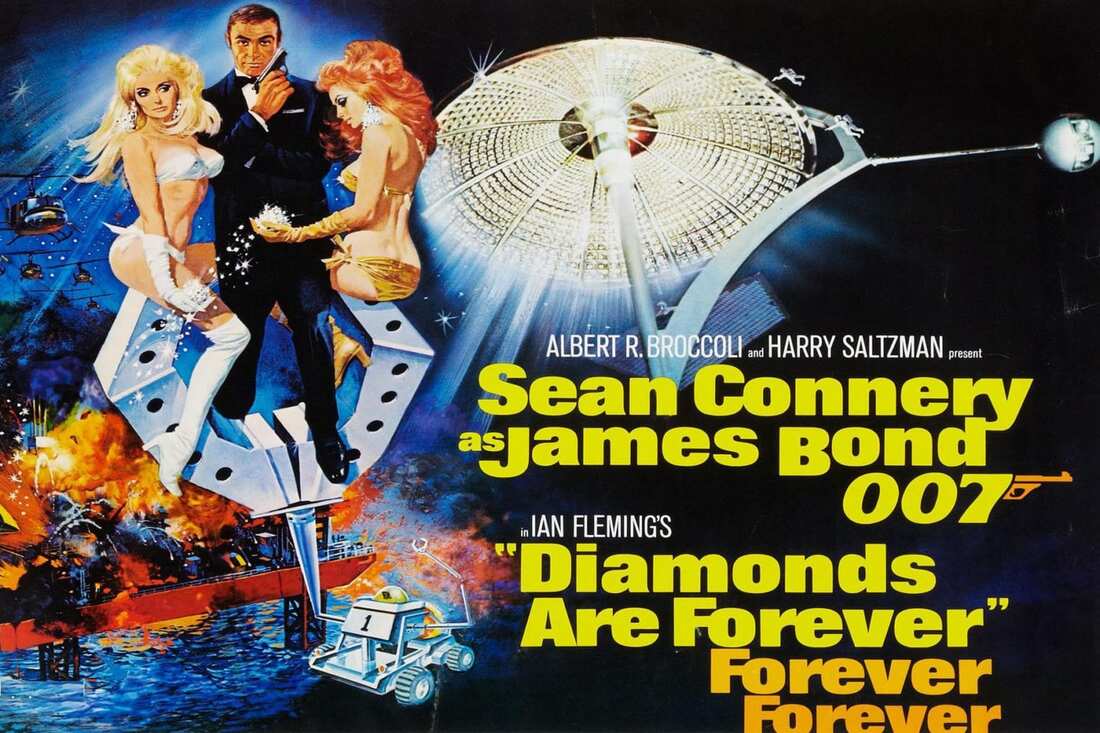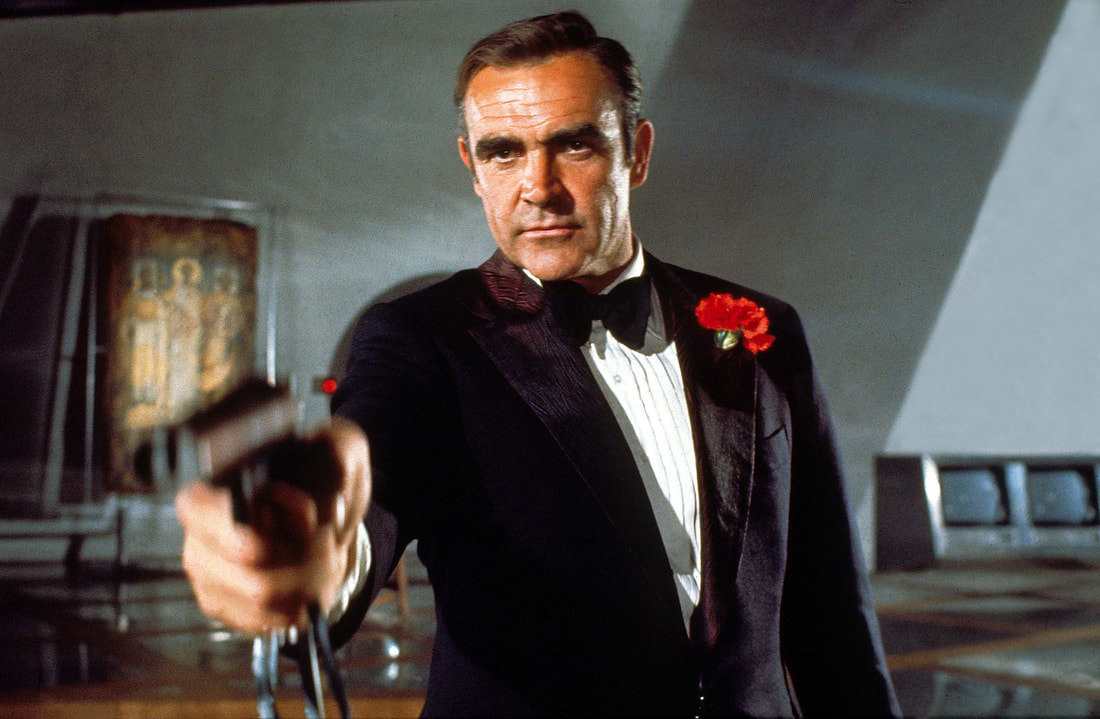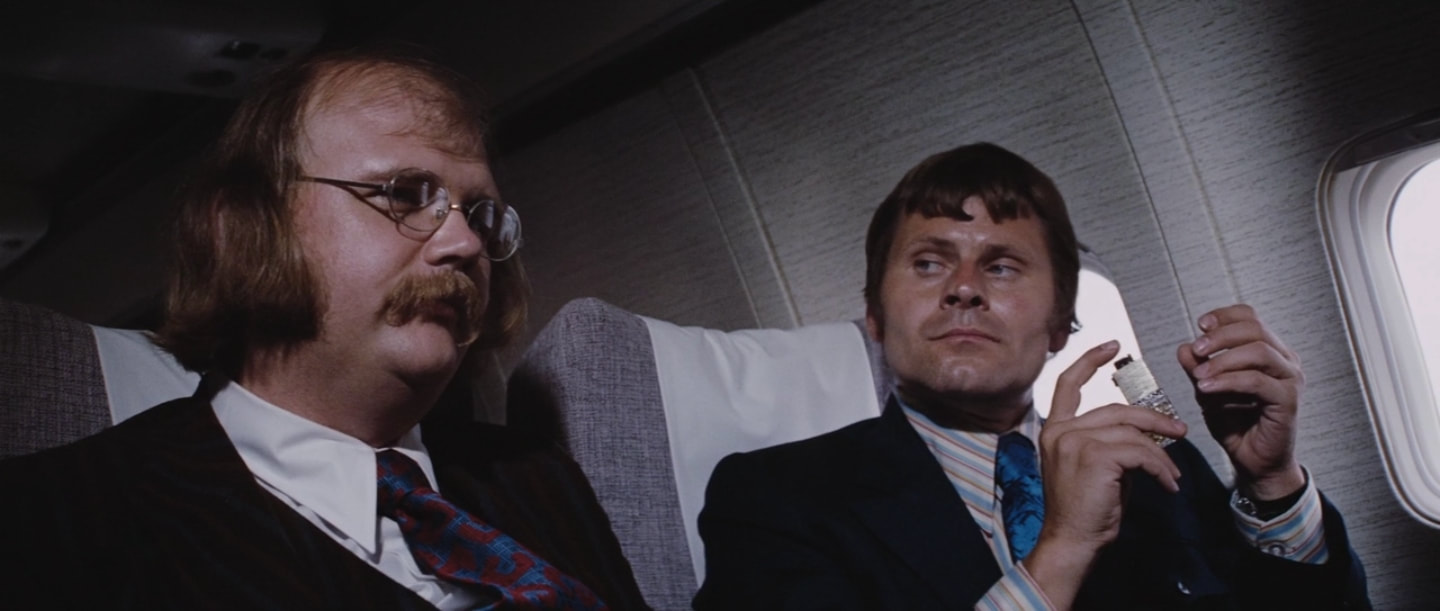|
In a world of alternative Bond films, there is an alternative Diamonds Are Forever, starring George Lazenby and acting as a direct sequel to On Her Majesty's Secret Service. It would be a brutal film, a revenger's tragedy perhaps as James Bond hunts Blofeld across the world, to avenge the murder of his wife. And yet it was not to be and instead we got this piece of crap. George Lazenby might have felt his choice in abandoning the franchise was justified on seeing this. In 1971, was Bond still relevant? While always trying to maintain a certain topicality, the producers were careful to keep Bond above the fray. Throughout the 60s and into the 70s, there will be no references to Vietnam, none to the street protests, the civil rights movements, or even rock 'n roll. In fact the permissiveness of the decade takes away from Bond's daring sexual adventures, which relied on a prudish side if they were to have any value. A visibly aged and paunchy Connery returns reluctantly with his eye on a big one off payment, which he saw as rectifying the imbalance of his compensation, compared to what 007 had become. The prologue to the film involves a miniature version of what the original concept had been with a globe trotting 007 pursuing Blofeld with some of the dodgiest ADR ever committed to film. So distant sounding is Connery's dubbed voice, the viewer might forgiven for worrying that Connery is intent on doing the entire film through stand ins and from the comfort of an armchair somewhere in the Seychelles. The story revolves around a diamond smuggling ring which is being investigated because the diamonds are disappearing rather than appearing on the market. Mr. Wint and Mr. Kidd (Bruce Glover and Putter Smith) a pair of homosexual assassins are following the diamonds and murdering everyone in the chain. 007 traces them first to Amsterdam and then to Las Vegas where the bulk of the film takes place. Here he teams up with yet another Felix Leiter (Norman Burton) and is followed from Amsterdam by Tiffany Case (Jill St. John). William Whyte (a Howard Hughes like recluse) seems to be the kingpin but it is soon revealed to be Blofeld (Charles Grey) pulling the strings with a plot to use a laser satellite to hold the world to ransom. Once Lazenby was out of the picture and the concept had changeed the idea was essentially to remake Goldfinger. Guy Hamilton was called in to direct and Tom Mankiewicz took over the writing from Richard Maibaum. Goldfinger's twin brother was an early concept that was dismissed and there were other story concepts that fell by the wayside. Whereas Goldfinger was happily shocked by its own ludicrousness, Diamonds Are Forever settled for bemused camp and some of the funniest innuendo of the series. With lines like 'Plenty O'Tool? Named after your father perhaps?' and references to collars and cuffs matching we are in the realm of the single entendre. The scene where Bond is beaten up by but finally subdues the interracial tag team of Bambi and Thumper (Lola Larson and Tina Parks) stands for a pretty good illustration of where Bond is politically: a fantasy of initial male insecurity overcome by superior violence and brute strength. It's one of the better scenes because at least something is going on and it provides Ridley Scott with some inspiration for Daryl Hannah's character in Blade Runner. Having enjoyed the refreshing novelty of a Bond girl with a character in Tracy, the series provides two vacuous, gold-digging bimbos in Plenty and Tiffany, who are both played for cleavage and cheap laughs. Speaking of cheap, the whole moon buggy sequence feels like something from an out and out comedy film. For children. The exciting sequences are themselves marred by some glaring errors. The car chase sequence in which Bond navigates an alley by putting the car on two wheels is both the set piece stunt and ruined by a continuity error which saw the car come out of the alley balancing on the other two wheels. Crowds watching the chase at a respectful distance also belied the reality of the scenes. The final oil rig attack feels not only perfunctory but was partly ruined when most of the explosives went off to early and footage had to be stitched together to save the scene.
Goldfinger - I've already argued - introduced the idea of Bond as essentially comedies with action, but Diamonds Are Forever although sporadically entertaining tips the balance too far to the side of parody. The politics of the 007 have always been as dodgy as a jam biscuit, but in the past they were reflecting the prejudices of their time and in some way defying them while in no way being particularly progressive - 007 doesn't mind having interracial sex for example. But with Diamonds Are Forever this feels like the first reactionary 007. There's an awareness of a world that is moving beyond Bond, making it irrelevant, the way Lazenby certainly seemed to feel. You can imagine the producers were stung by this idea that Bond was outdated and this is the result. Bond as an old dog, slouching his way through middle age. Something was going to have to change.
1 Comment
|
AuthorJohn Bleasdale is a writer, novelist and screenwriter. Archives
March 2020
Categories |




 RSS Feed
RSS Feed
